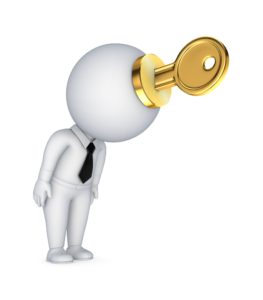The Many Faces of Help
Everyone has been at a very low point in their lives. It is part of being human. Whether it be a failing relationship, job loss, sickness, death of a loved one, or a combination of these, we eventually reach the end of our emotional rope and recognize we can’t get better alone.
But we also are so confused about where and how to find help. Hopefully the information below will provide details on your options as to what is out there in the world of therapy so that you can successfully find a good fit with a therapist to help you cope with your experiences.

How Therapy Helped Me
Let me begin with my personal story. A few years ago, I was going through a tough time. Not just with one aspect of my life, but several.
I divided the main categories of life as relationship, job, family, and health.
First, my relationship of over a decade was on the rocks. My husband was stressed over work which led to lots of fighting. I had just lost my part-time job so was doing my best to find something to bring in some income, as well as keep me busy. I had just embarked on the stressful journey to put my mother into an assisted living facility, moving her across Texas from her home of 35 years. In terms of health, I had been diagnosed with what could be breast cancer, but because of its form, it was impossible to do a biopsy, so I was forced to wait six months for another mammogram, not knowing if I had breast cancer or not.
Basically, I found that I had lost control over every aspect of my life. Nothing was going well and I had no idea how to fix it. Being an “I can fix it” kind of person, this was very frustrating and upsetting for me. And obviously, it didn’t help with the relationship issues, either with my husband or with my long-suffering friends.
Oh, So You’re Crazy

Speaking of husbands, many men (and even women) are very averse to going to therapy. I would have liked to undertake couples’ therapy but the husband would have no part of it. He is a private person so spilling his guts is anathema to him. In fact, therapy in general suffers from a stigma that labels you as crazy, incapable of solving your own problems, or messed up in some way that you have to see a professional for some mental problem because you’re too much of a useless wimp to cope. You gotta get over that thinking if you are to move forward.

I was depressed, despite being on anti-depressants, as well as taking some heavy duty medications to deal with anxiety attacks. Not being one to mire in self-pity, one day I said “enough of this bullshit! Get off your ass and figure out what to do!”
Time for Help
I was not a stranger to therapy/counseling, so I said it’s time to get some professional help to get an objective and expert opinion to determine how to face these problems and ultimately solve them. But who to ask?
Here is where the fun begins. I’ve seen counselors, psychiatrists, and psychologists. However this time, I knew what I needed by doing my own research. Yeah, I do that a lot for anything medical; my friends call me Dr. Hastings. Doctors either love me or hate me, since I usually tell them what I want them to do for me. I figure I am making their lives easier. Ok off point, back to therapy.
Of course as we all do today, I started with the Internet. I eventually found someone that looked promising, and I’ve been seeing her for a while now. She is a clinical social worker and I like her approach. Below I will outline what your options are in terms of therapy. From there, you can narrow it down to finding someone who meets your needs. And of course, if you don’t feel you are getting your money’s worth or feeling any better once you start your sessions, you have the right to change.
The Role of Therapists
All therapists are there to help. They don’t label you, you can’t shock them, even if you say you are obsessed with having sex with sheep (or maybe you have). They take what you say and process it objectively, with the goal of helping you see it in a way that is less threatening or important as you believe it to be. Anything you say is totally confidential. They don’t blame your parents, but they do look at the big picture of your life—including childhood experiences—to determine their impact on your behavior and the way you approach problems as an adult. They can assign you a task after your session to practice what you’ve learned. Or suggest you keep a journal focusing on situations pertinent to your current challenges. It just depends.
Psychologists
Psychologists hold a medical degree and help many types of people and treat many kinds of problems. Depression, anger, being overwhelmed be it from a new job or grieving over an incident, they are trained to deal with these issues. They also treat those who need help dealing with a chronic condition that is impacting your life or physical health.

Psychologists also assist people with learning to cope with stressful situations, overcoming addictions, or managing chronic illnesses. Practicing psychologists are trained to conduct tests and assess the results. These tests drill deep to diagnose a condition and provide in-depth information on how you feel. Tests address behavioral strengths, weaknesses, intellectual skills, personality characteristics, as well as how well your neurological abilities are functioning.
Psychiatrists
A psychiatrist is a physician with a medical degree who specializes in the diagnosis, treatment and ultimately prevention of mental and emotional disorders, as well as addiction. They are basically similar to psychologists with regard to their focus. They employ a wide range of treatments and also conduct tests. Their biggest difference from other types of therapists is they are able to prescribe medications suitable for dealing with the issues identified through diagnostic testing.

Psychiatrists often work in teams and will collaborate with a patient’s primary care physician and other relevant medical professionals.
Clinical Social Workers
Social workers either help people solve and cope with problems in their everyday lives, or diagnose and treat mental and emotional issues as well as behavioral issues, again similar to psychologists and psychiatrists. A social worker can work in mental health clinics, schools, hospitals, and private practices.

As I mentioned, I opted for a social worker, mainly because my particular therapist specialized in Cognitive Behavioral Therapy (CBT), something I wanted to try for my specific problems. According to the Mayo Clinic, CBT “helps you become aware of inaccurate or negative thinking so you can view challenging situations more clearly and respond to them in a more effective way. CBT can be a very helpful tool in treating mental health disorders, such as depression, post-traumatic stress disorder (PTSD) or an eating disorder. But not everyone who benefits from CBT has a mental health condition. It can be an effective tool to help anyone learn how to better manage stressful life situations.” In short, it is a form of therapy that strives to help you respond to or approach a negative situation in a more constructive manner.
Life Coaches
And last, life coaches. Their approach is much more all-encompassing than other professional “advisors.” They help you look at your entire life, help you identify your life goals, and guide you through various techniques and provide advice to help you focus on your goal and achieve it.

Life coaches work with their clients to help them overcome obstacles and make changes or adjustments in their lives. The coach works with the client as a partner, knowing that the client has the answers to create the changes they seek. The client can be an individual or a group and the topic can range from life balance to restructuring a Fortune 500 company, according to The National Coach Academy.
Coaches can specialize in a variety of fields, including general life and life balance, health, small business, finances, and relationships. They are very skilled in asking the right questions and helping you determine the answers. A life coach’s client knows who they are and what they want, and just simply need some professional guidance to help them achieve their “personal best.”
That is a very general description because remember, a life coach can also help you with the same issues as a therapist, depending on their specialty. They have a vast array of specializations, unlike the often limited scope of other therapists.
Now It’s Up to You
So there you have it. Did it help or are you even more confused? All therapists offer assistance, some prescribe drugs, some employ specific therapies, some conduct assessment tests, and life coaches—who tend to be generalists but also specialize in a large variety of fields—approach your issues in a more holistic way. A life coach works with you as a partner on your journey towards a successful, happy, physically and emotionally healthy and satisfying life.

You leaning towards the life coach option? Frank Hopkins is more than happy to talk to you about your goals and discuss options and ways in which he can work with you to achieve them. Call or email him now and set up a consultation to get you started on your way!
https://hopkinsleadership.com/
Does a low point have a grip on you and your life? Leaving it behind is a process of learning and experimentation. Let me know how it is going for you. If you would like to talk, schedule a time for a call and let’s give it a go.
CLICK HERE TO SCHEDULE YOUR CALL
Did You Enjoy This? Become a Subscriber and Learn More
As an independent coach and writer, I manage my own marketing, my own press, and all of my own content. I develop my content responsive to your requests.
By becoming a member of my site, you can gain access to articles, audio versions, and commentaries relevant to my articles. You will also find interactive online courses. We have quite a bit more to come; I hope to hold your interest for quite a long time as you grow and learn.
Sources:
National Coach Academy
Mayo Clinic
Lifecoaching.com
American Psychologic Association
Bustle

